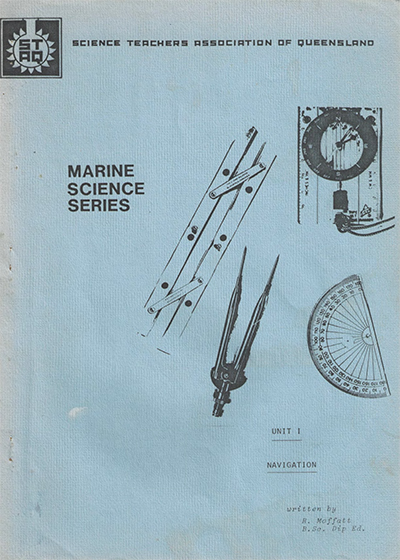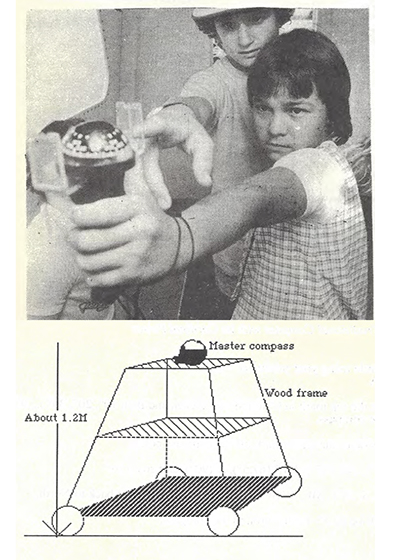1983 STAQ Navigation classroom notes

ISBN : 0 9598303 7 5
Published Date : 01 August 1983
Product Code : 1983 STAQ
Format : pdf file for download
By Bob Moffatt
Non-commercial school licence
The publisher and author/s of this pdf file grant to the school a revocable, non-exclusive, non-transferable right and licence to use the content, exercises, lab and field work lesson notes within the school for educational purposes only.
Yearly record keeping
To ensure fair payment is made to collecting societies, educational institutions are to record the digital ISBN above.
- To do this go to the school office and ask the IT department or whoever looks after digital book licences to record the ISBN in the school digital library licence catalogue.
Copyright
Except as permitted by the Copyright Act 1968 (Cth), you may not reproduce any of the contents of this publication, without the written permission of the copyright owner.
The title to, and intellectual property rests with the publisher's author/s, illustrators, photographers and design consultants and nothing in the agreement should be construed as transferring those rights to the school.
Educational exemption
There are exemptions under the Act that allow educational and government use of text, images and music scores for educational purposes.
These exemptions are in Part VB of the Copyright Act 1968 (Cth), where you are entitled to reproduce or communicate 10% of the words or one chapter from this file for educational use within your school. If you wish to reproduce or communicate MORE than 10% contact the copyright owner.
For more information, see www.copyright.com.au and www.copyright.org.au.
Teachers Information
The unit was experimental and had many faults and failures.
If you ever want to build a trolley, you need plenty of room. Its a good idea but needs plenty of time to get it right.
Some innvoative ideas could include:
- Pilotage markers into the school and out of the school
- Advisory signs overhead power lines - lower your mast or submerged cables
- Chanel markers
THE ATMOSPHERIC ENVIRONMENT
From the syllabus at the time:
Man lives on the surface of the earth on which he is dependent for food, clothing, shelter and movement. But he also lives at the bottom of an ocean of air. His survival is dependent on the existence of favourable conditions of temperature, pressure and chemical composition of this surrounding atmosphere. The state of the atmosphere is a major determinant of weather and hence influences our everyday existency. To understand, to appreciate and to survive in his immediate everyday environment, it is essential that man develops an understanding of the many factors, and their complex interrelationships, which influence the weather and the related atmospheric environment.
SCIENCE FOR RECREATION
One consequence of the rapid growth in the use of technology in our society is the increase of leisure time available. The demand for education in the sensible use of this leisure time provides a challenge to schools. Schools have the opportunity, indeed the responsibility, to provide a balanced curriculum which pays due attention to the development of potential recreational activities. The concept of this core topic is to encourage an appreciation of the role of science and scientific methods in recreational pursuits.
Survival techniques
This topic is concerned with providing the student with skills associated with his well being in outdoor studies which may be extended to adult life. Possible areas of study include navigation (e.g. celestial, orienteering), first aid, bushcraft (e.g. locating food and water, finding protection from the elements).
From the syllabus at the time:
Contents
Module objectives
Framework core
Suggested times, evaluation and resources
Specific objectives
- Section 1: Characteristics of the coastal zone
- Section 2: Coastal navigation
- Section 3: Sample navigation excursion
- Section 4: Estuarine navigation
- Section 5: Weather and the small ships forecast






